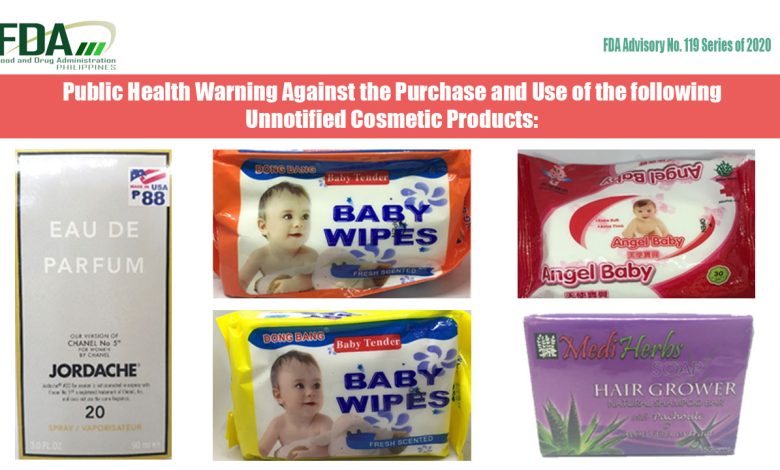NGO finds wipes with banned ingredients still available in Antipolo, Caloocan stores

WET WIPES containing ingredients banned by the Food and Drug Administration (FDA) are still available in the market, a non-government organization said.
In a news release on Thursday, EcoWaste Coalition said they were able to procure from retail stores in Antipolo and Caloocan four unauthorized brands of wipes containing such ingredients as methylisothiazolinone and methylchloroisothiazolinone.
The brands are: 123 Kid’s Baby Wipes, Dong Bang Baby Wipes, and two variants of Collagen Make-Up Cleansing Wipes.
Last year, the FDA banned the brands Dong Bang Happy Baby Wipes and Baby Q Baby Wipes for containing the ingredients that can cause allergic reactions, especially on babies’ sensitive skin.
“The manufacturers, importers, and distributors of wet wipes containing these banned ingredients should cease and desist from making and trading these non-compliant products, which can pose health risks, particularly for babies,” EcoWaste Coalition’s Chemical Safety Campaigner Thony Dizon said.
The group also said that manufacturers of such wet wipes were given ample time to reformulate their products and to withdraw from the market those that contain the hazardous chemicals.
The FDA prohibited on Aug. 10, 2017 the said chemicals in leave-on cosmetic products, and gave manufacturers more than a year or until Aug. 31, 2018 to conform.
The FDA also issued Advisory 2021-2656 on Oct. 28 and posted it online on Nov. 15 to warn consumers of the hazardous chemicals contained in wet wipes imported from China as clinical data “indicates that no safe concentrations of methylisothiazolinone for induction of contact allergy or elicitation have been adequately demonstrated.”
EcoWaste also cited the US Occupational Health and Safety Administration’s definition of methylisothiazolinone, which is often used in combination with methylchloroisothiazolinone, as “a chemical that will lead to an allergic response following skin contact.” — Bianca Angelica D. Anago




